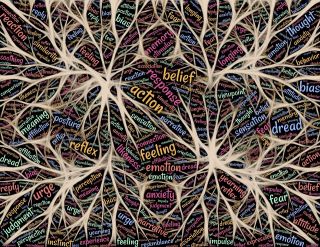Chronic Illness
A Diary of Parkinson’s, Year 4
A Personal Perspective: Science vs. emotion, mind vs. body.
Posted July 19, 2023 Reviewed by Hara Estroff Marano

I was diagnosed with Parkinson's disease in August 2019. Year one I struggled with my feelings about a wave of symptoms, new meds, lot of strange tests, and feelings of something that I could not quite grasp (mortality?). Looking back, I see that I was in a true emotional struggle that I had not even noticed.
A year later, I was full of optimism about the physical aspects of PD, including the left-side tremors the medication appeared to calm. However, by the end of that first year my cognitive capabilities appeared to be problematic. My memory was sketchy, and I dealt with forgetfulness, slower mental faculties, and a general diminishing of my ability to multitask (and sometimes even to unitask). Admittedly, I had hit the magic age of 70, and I couldn’t attribute cognitive decrements to PD—as aging provided an equally plausible explanation. As I re-read the post, marking that year, I see that I was confused and feeling quite emotional about the state of my PD brain.
In mid-2022, a third post chronicled the close of year three. Clearly, I was still amid cognitive issues and no closer to deciding whether they were due to PD or aging. New symptoms cropped up including RBD, or REM Behavioral Disorder, which causes me to physically act out my dreams, often quite violently. All in all, I seemed to have settled in with my PD.
Here we are a year later, and I am approaching the end of year four of my journey with PD. The neuropsych testing and MRI showed that my cognitive capacities are, overall, doing quite well. Sure, there were some issues such as scoring below average on visuospatial tasks, but all in all, my brain seems to be in good shape (for someone my age!).
It appears that my main problems, other than those in the visuospatial realm, have to do with attention. I did fine on the tests with attentional measures, but I seem to have more attentional lapses that, once again, may just be aging. When I talk to friends of my age, we all seem to have lapses in attention and other assorted decrements. It’s probably just aging, which is better than it being a function of PD.
Among the symptoms, the most difficult is the RBD. Several nights a week my wife tries to wake me up as I flail with my arms and legs and often shout words like "stop." Oddly, my left hand (my main PD side is my left) clinches tight all night, and my wife is unable to loosen my fingers. Now that I am aware of my hand, I realize that it is stiffer than my right hand and often, involuntarily, in a “claw” shape. My big toe on the left also seems to be doing a dance to its own beat. And some mild left-hand tremors have cropped up.
During this past year, as the pandemic slowed and we attempt to regain normalcy, I have made a concerted effort to expand and solidify my social network, scheduling regular video talks with my kids, some friends, and my grandkids. I’ve even reconnected with old friends and added them into my social network. I continue to be involved in the mentoring program with the San Diego Parkinson’s Association and hope that I can help other PD folks a bit.
All in all, it has been an odd year. Physical problems unrelated to PD have been stressful, which then impacted my PD symptoms. But my expanded social sphere has helped keep me somewhat grounded. And, most important, my wife and I married after living together for years. A nice, small, wedding with family looking out over the ocean. It was an evening to remember!


